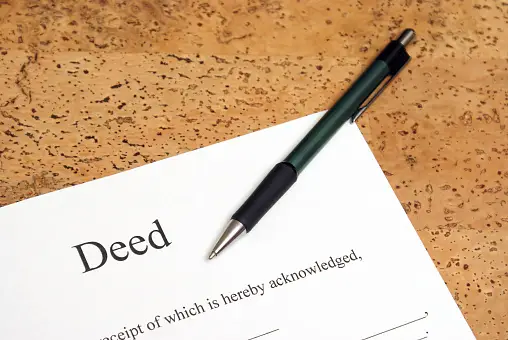Understanding Different Types of Property Deeds in Texas
In Texas, there are several types of property deeds, each serving a unique purpose in the transfer of ownership. The most common types include General Warranty Deeds, Special Warranty Deeds, and Quitclaim Deeds. Understanding these distinctions is crucial for property owners and potential buyers to ensure their rights are protected during transactions.
For instance, a General Warranty Deed provides the highest level of protection to the grantee, guaranteeing that the grantor holds clear title to the property and has the right to sell it. In contrast, a Quitclaim Deed offers no such guarantees, making it essential for parties to understand the implications of each deed type before proceeding with a transaction.
The Role of Property Deeds in Estate Planning
Property deeds play a significant role in estate planning, as they dictate how property will be transferred upon the owner's death. Properly executed deeds can help avoid probate and ensure that property is passed on to the intended heirs without unnecessary delays or legal complications.
For example, using a Transfer on Death Deed allows property owners to designate beneficiaries who will automatically receive the property upon their passing, eliminating the need for probate court involvement. This strategy can simplify the estate administration process and provide peace of mind to property owners and their families.
Legal Implications of Property Deeds in Texas
The legal implications of property deeds in Texas can be complex, as they affect ownership rights, liabilities, and the ability to transfer property. Understanding these implications is vital for anyone involved in real estate transactions or estate planning.
For instance, an improperly executed deed can lead to disputes over property ownership, potentially resulting in costly legal battles. Therefore, it is advisable to consult with a qualified attorney to ensure that all deeds are executed correctly and in compliance with Texas law.
How to Choose the Right Property Deed for Your Needs
Selecting the appropriate property deed is crucial for protecting your interests in real estate transactions. Factors to consider include the nature of the transaction, the relationship between the parties involved, and the level of protection desired.
For example, if you are transferring property to a family member, a Quitclaim Deed may suffice. However, if you are selling property to an unrelated buyer, a General Warranty Deed is recommended to provide assurance of clear title and protect against future claims. Consulting with a legal professional can help you make the best choice for your circumstances.

